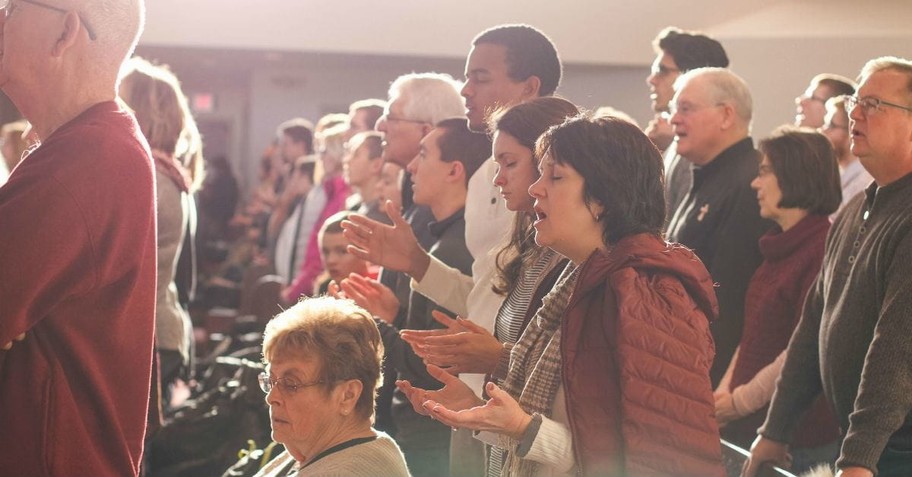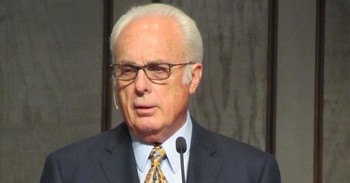What Is the Church? It's Role and Purpose According to the Bible

“Church” is the translation of the Greek term ekklesia, and is used in the New Testament to identify the community of believers in Jesus Christ. It literally means “assembly,” “congregation,” or “meeting.” A similar term was used in the Old Testament referring to experiences such as “the day of the assembly,” “the Lord’s congregation,” or “meeting before the Lord.”
Thus, when Jesus declares: “I will build my church” (Mt 16:18), it did not come as something unfamiliar to the common listener. Shortly after, in the New Testament, the word is confined strictly to refer to the congregation of believers in Jesus Christ.
It is worth mentioning that in the New Testament, no synagogue, temple, chapel, tabernacle, building or any other meeting place was ever called a “church.” The term always referred to the Christian assembly and, in the New Testament, it was used for both the local community of believers and the overall collection of Christians.
Photo Credit: Unsplash/RobinSpielmann
"Church" Two Meanings and Origin
The first sense for which the word “church” is used, what we call “local,” is defined by its geographical setting. The churches in the New Testament were identified by the name of a city, never by the name of a country or region. For example, one would speak of “the churches of Galatia” in plural because Galatia was a region with many cities, and therefore, many local churches. When talking about Corinth, Ephesus, Thessalonica, etc., the singular form is used and the name of the city identifies the church. For example, the church in Corinth or the church in Ephesus; each one of these churches was comprised of the Christian residents of the same city.
The second sense, called “universal,” refers to the collection of believers in Jesus Christ from all times and places. This church consists of both Jews and Gentiles. The first meeting of the universal church will occur during the rapture: “For the Lord himself will descend from heaven with a shout, with the archangel’s voice, and with the trumpet of God, and the dead in Christ will rise first. Then we who are still alive, who are left, will be caught up together with them in the clouds to meet the Lord in the air, and so we will always be with the Lord” (1Th 4:16-17).
This will be an unprecedented event. All that we have believed and loved, seeing only from a distance, will be a tangible reality. Until then, we rely on the local expression in order to experience communion. This is our immediate family in the faith. The local church differs only in size from the universal, but not in essence. The nature of the local church and God’s commitment to it are the same as those of the universal church.
Photo credit: ©Unsplash/JamesColeman

Who builds the church?
Jesus declared that building or edifying the church is something He would do personally. He said: “I will build my church” (Mt 16:18), but that does not mean that He will not also use others for the task. One of the most well-known metaphors used to refer to the church is the “body of Christ.” Jesus Christ states that He is the head, and that all believers form His body. The emphasis of the metaphor is on the union of Christ and the church and between the believers themselves—some- thing indispensable to the understanding of how the church functions under the authority of Jesus Christ.
According to Paul, every believer has a function in the church, just as the different parts of a body have a specific function. The idea of a group of clergy taking responsibility for all Christian ministry while a mass of laypeople simply receive the benefits is totally foreign to Scripture. Bishops, elders, pastors, deacons, and new believers are simply members of the body of Christ with distinct responsibilities and roles, according to the maturity and gifts of each one. A believer that behaves like Diotrephes in 3 John (who takes ownership of the local church, believing himself to be the maximum authority) usurps the place of Christ.
Photo credit: Unsplash/Colin-Maynard

What is the role of the local church?
Therefore, the ministerial responsibility of the local church falls upon the members as a whole. As the members identify their gifts and take on the responsibility of administering them under the leading of the Holy Spirit, the church increases its capacity to bless and to fulfill its mission on earth.
Some have identified the condition of the modern church as the “80/20 syndrome”: a small percentage of the members (20 percent) take on the responsibility of ministerial work, while the other 80 percent are mere spectators.
Others have pointed out that with each passing day, the church is more and more like a football game where, from the stands, a crowd observes a small number of players who offer a great show. Those that put forth an effort on the field urgently need rest, whereas the spectators desperately need to exercise. This image illustrates the reality of the church. The crowd of believers that fills our temples and chapels each Sunday must discover how useful and necessary they are in the divine plan of evangelization and the building of the body of Christ.
Photo credit: Unsplash-akira-hojo

What was the church like in the New Testament?
The church that we see in the New Testament is dynamic. Never a prisoner of buildings, we see the church meeting in the temple, in a synagogue, in the street, beside the sea, in public places, and often in homes. Acts describes a community of faith in constant movement:
“Every day they devoted them- selves to meeting together in the temple, and broke bread from house to house. They ate their food with joyful and sincere hearts, praising God and enjoying the favor of all the people. Every day the Lord added to their number those who were being saved” (Ac 2:46-47).
It appears that the meetings were daily, and definitely not monotonous. Worship, fraternal communion, prayer, working in mutual edification, giving testimony of Christ, and taking care of the needs of the poor were not part of special programs, but rather everyday activities. Those that observed the believers’ way of life called them people of “the Way”—surely due to their constant action, their defined doctrine, and because they could always be seen going from one place to another.
Photo credit: Unsplash-adrien-olichon

What is the future of the church?
The future of the Lord’s church is a glorious one. The church will not only be victorious in heaven, but here on earth as well. By taking another look at Matthew 16:18, we see that it refers to the church when it says “and the gates of Hades will not overpower it.” Jesus’s statement here does not present a small and fearful group of timid believers. On the contrary, it shows a vigorous and bold church, capable of coming out victorious in any circumstance, including death.
When Jesus presents the church as triumphant, even against the gates of Hades, we should see Satan and all his demons defeated by the work of the cross, and representing no threat for the future of the church. Those that form part of the church belong to the winning team and should speak and act as such.
The future of the church was established on the mission statement in Matthew 28:19: “Go, therefore, and make disciples of all nations . . .” The verse does not invite us to make disciples “in” the nations but “of” the nations. The church must disciple the nations. As it advances, it teaches the nations how to live. The church carries out the work of discipleship just by existing in the world. Of course, this places an enormous weight of responsibility on the shoulders of every believer, as it assumes that their lives are to be an example and inspiration to humanity.
In Ephesians 5:26-27, Paul declares that Jesus gave Himself up for the church, “to make her holy, cleansing her with the washing of water by the word. He did this to present the church to himself in splendor, without spot or wrinkle or anything like that, but holy and blameless.” Our God has not failed in any of His endeavors, nor will He fail in this one. The church was designed to be holy and blameless. With this goal Christ gave Himself up, and with this goal His workers are to carry out their work. There is no reason to believe that we will not achieve this goal. We can affirm that the future of the church will be glorious.
Photo credit: Unsplash

What does God say about the present church?
When we say that the future of the church is glorious, we affirm that the same is true in the present. Today, the church is exactly what God stated: the house of God, the pillar and foundation of the truth, God’s temple, His body, a chosen people, a holy priesthood and, regardless of the circumstances that it faces, it will continue being everything that God said it is.
In Ephesians 3:10, Paul explains what is currently happening with the church, “so that God’s multi-faceted wisdom may now be made known through the church to the rulers and authorities in the heavens.” We cannot fully understand the greatness of the church. For centuries, God kept hidden this marvelous mystery. That which was revealed to Paul and others is so extraordinary that even the angels watch what is taking place attentively. The love of the Lord for His church leaves everyone speechless. God desired to bring Jews and Gentiles together into one people: the church. This is not easy for those who expect everyone to unite under the Jews in order to come to God. Jesus Christ came to earth and gave up His life to save us.
This must be admirable to the angels, who saw a good portion of their own fall with no possibility for redemption. Since the Old Testament, the angels have shown curiosity towards this reality, but only recently, and through the church, has God instructed everyone and His wisdom been fully expressed. This scene seems to describe the angels that watch the expression of divine love towards the church from a celestial balcony and, in admiration, are able to understand the wisdom of God like never before. This knowledge should leave us breathless, with tears of thankfulness and a profound sensation of admiration and humility as we see ourselves as a privileged part of the divine plan. Glory to God in the church today and for all of eternity!
Photo credit: Unsplash
Reprinted from the CSB Fisher of Men Bible (copyright © 2018 by Luis Ángel Díaz-Pabón) with permission of Holman Bible Publishers.
Pastor Luis Ángel Díaz-Pabón is president of the Global Missionary Society and leads several ministries including La Capilla del Rey (The King’s Chapel), a church in Miami, Florida. He serves as General Editor for the Fisher of Men Bible, now available in Spanish, Portuguese and English.
Originally published October 04, 2018.






